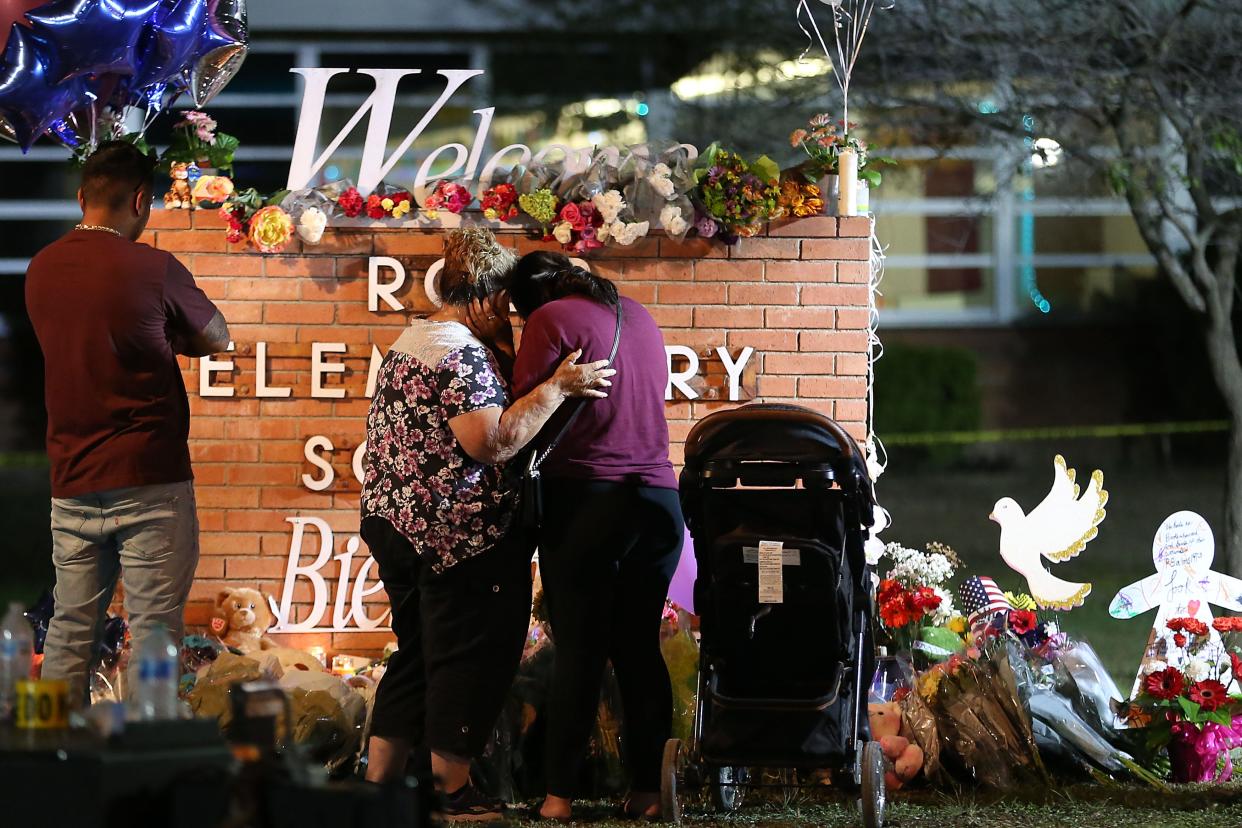We're growing numb to the murder of our children

April 20, 1999, is a day that is forever etched into my soul. It was the day two students walked into Columbine High School in Littleton, Colorado, and proceeded to take the lives of 13 people.
I had just returned from my lunch break. I was working as a receptionist in Columbus. As I walked in, I was abruptly greeted by news of a school shooting that was unfolding. We turned on the small television to the local news. We saw the horrific images of students running out, teachers protecting those they could, and an astounding police presence.
My little brother was living with family out of state at the time. The death of our father hit him hard, and he thought a change of scenery would help. While watching the massacre unfold, we learned it was taking place in Littleton, where my brother just happened to be living. He was attending the local high school there, Columbine.
Once the shock wore off and the fear took over, I started calling. Time after time I tried to call my aunt, the school, my brother, anyone. The lines were jammed. No phone calls were going through. We didn’t have Facebook or instant messaging. We didn’t know if he was alive or dead.
I was able to reach my mother, who was just as worried as I was. I left work early and settled down, cordless telephone and tissues in hand for a night of relentless dialing and busy signals. It was seven hours before we heard anything.
My brother had skipped school that day. It was 4/20, an unofficial stoner holiday, and my brother had decided to go smoke marijuana with his girlfriend and ditch school. To this day, I’m thankful he made that choice. I’m thankful he made what some would call a bad decision, because it possibly saved his life.
Twenty-three years later it seems we as a nation haven’t learned anything. In the wake of the Uvalde massacre, I find myself asking ‘Why is this still happening? Why are people able to walk into elementary schools, where students are relishing the glorious, fun-filled days that mark the end of the school year, and murder them?’
Every time this happens, we ask that same question. The problem is that it is happening all too often. Yes, the shock that comes with seeing those images and hearing about the events makes us emotional. We say, ‘What if it happened here?’ with no real concern that it could happen here, wherever your ‘here’ is. As a nation, we are becoming numb to the mass murders of our citizens.
Those who have experienced something like this first-hand will tell you it never gets easier. That fear and pain is immediately brought to the surface when we see the news, and our hearts ache. We cry thinking about the parents not knowing if it was their baby that was killed. We sob knowing the scars that the other children will carry with them for the rest of their lives. They’re branded. The class of 20..., the ones who lost their classmates at school, the place where they go to learn, grow, and not be afraid.
As my own children now come home and tell me about the intruder drills they do, I have trouble wrapping my head around it. When I go back to my own high school in Byesville, and see signs alerting visitors that staff is legally allowed to carry firearms, I still ask ‘How did we get here?’
I know how we got here. We bury the pain. We focus on the shooter and not the victims. In doing so, we allow ourselves to block it out. Numb the heartache and forget the innocence that was stolen from us. We focus on what was wrong with whoever pulled the trigger and not on how to make the system better. We quietly, and painfully, accept that change is needed, but we aren’t sure how to make it happen.
I hope you never have a day like April 20, 1999. I hope you never feel what the families of Columbine, Sandy Hook, Marjory Stoneman Douglas, Virginia Tech, Marysville Pilchuck and many others felt. I hope you never have a day like that etched into your soul.
Heather Sevigny is a resident of Cambridge.
This article originally appeared on The Daily Jeffersonian: We're growing numb to the murder of our children

